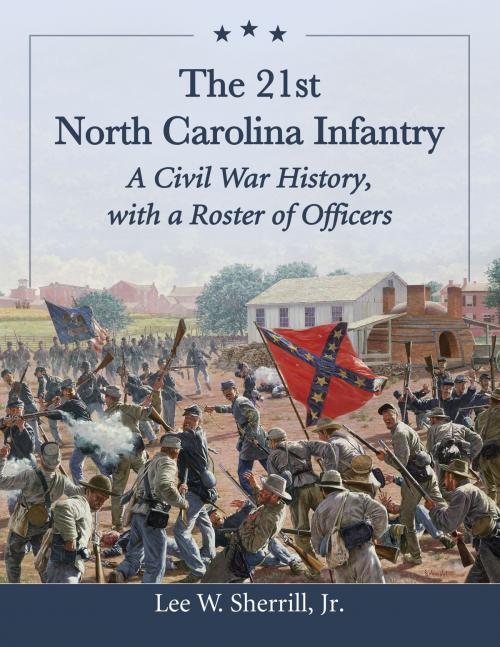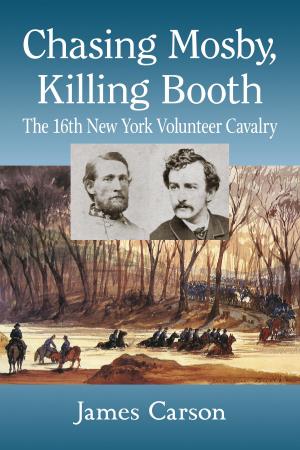The 21st North Carolina Infantry
A Civil War History, with a Roster of Officers
Nonfiction, History, Americas, United States, Civil War Period (1850-1877)| Author: | Lee W. Sherrill | ISBN: | 9781476616315 |
| Publisher: | McFarland & Company, Inc., Publishers | Publication: | February 28, 2015 |
| Imprint: | Language: | English |
| Author: | Lee W. Sherrill |
| ISBN: | 9781476616315 |
| Publisher: | McFarland & Company, Inc., Publishers |
| Publication: | February 28, 2015 |
| Imprint: | |
| Language: | English |
The 21st North Carolina Troops (11th North Carolina Volunteers) was one of only two Tar Heel Confederate regiments that in 1865 could boast “From Manassas to Appomattox.” The 21st was the only North Carolina regiment with Stonewall Jackson during his 1862 Valley Campaign and remained with the same division throughout the war. It participated in every major battle fought by the Army of Northern Virginia except the 1864 Overland Campaign, when General Lee sent it to fight its own intense battles near New Bern and Plymouth. This book is written from the perspective of the 1,942 men who served in the regiment and is filled with anecdotal material gleaned from more than 700 letters and memoirs. In several cases it sheds new light on accepted but often incorrect interpretations of events. Names such as Lee, Jackson, Hoke, Trimble, Hill, Early, Ramseur and Gordon charge through the pages as the Carolina regiment gains a name for itself. Suffering a 50 percent casualty rate over the four years, only 67 of the 920 young men and boys who began the war surrendered to Grant at its end.
The 21st North Carolina Troops (11th North Carolina Volunteers) was one of only two Tar Heel Confederate regiments that in 1865 could boast “From Manassas to Appomattox.” The 21st was the only North Carolina regiment with Stonewall Jackson during his 1862 Valley Campaign and remained with the same division throughout the war. It participated in every major battle fought by the Army of Northern Virginia except the 1864 Overland Campaign, when General Lee sent it to fight its own intense battles near New Bern and Plymouth. This book is written from the perspective of the 1,942 men who served in the regiment and is filled with anecdotal material gleaned from more than 700 letters and memoirs. In several cases it sheds new light on accepted but often incorrect interpretations of events. Names such as Lee, Jackson, Hoke, Trimble, Hill, Early, Ramseur and Gordon charge through the pages as the Carolina regiment gains a name for itself. Suffering a 50 percent casualty rate over the four years, only 67 of the 920 young men and boys who began the war surrendered to Grant at its end.















